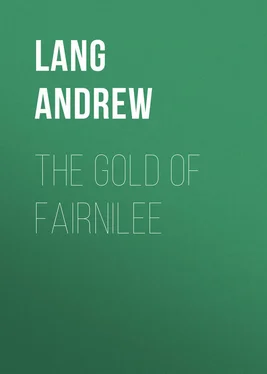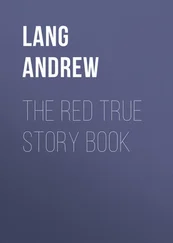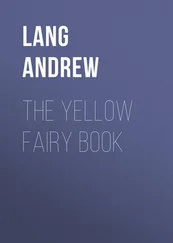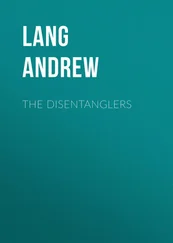Andrew Lang - The Gold Of Fairnilee
Здесь есть возможность читать онлайн «Andrew Lang - The Gold Of Fairnilee» — ознакомительный отрывок электронной книги совершенно бесплатно, а после прочтения отрывка купить полную версию. В некоторых случаях можно слушать аудио, скачать через торрент в формате fb2 и присутствует краткое содержание. Жанр: foreign_antique, foreign_prose, на английском языке. Описание произведения, (предисловие) а так же отзывы посетителей доступны на портале библиотеки ЛибКат.
- Название:The Gold Of Fairnilee
- Автор:
- Жанр:
- Год:неизвестен
- ISBN:нет данных
- Рейтинг книги:3 / 5. Голосов: 1
-
Избранное:Добавить в избранное
- Отзывы:
-
Ваша оценка:
- 60
- 1
- 2
- 3
- 4
- 5
The Gold Of Fairnilee: краткое содержание, описание и аннотация
Предлагаем к чтению аннотацию, описание, краткое содержание или предисловие (зависит от того, что написал сам автор книги «The Gold Of Fairnilee»). Если вы не нашли необходимую информацию о книге — напишите в комментариях, мы постараемся отыскать её.
The Gold Of Fairnilee — читать онлайн ознакомительный отрывок
Ниже представлен текст книги, разбитый по страницам. Система сохранения места последней прочитанной страницы, позволяет с удобством читать онлайн бесплатно книгу «The Gold Of Fairnilee», без необходимости каждый раз заново искать на чём Вы остановились. Поставьте закладку, и сможете в любой момент перейти на страницу, на которой закончили чтение.
Интервал:
Закладка:
Andrew Lang
The Gold Of Fairnilee
CHAPTER I. — The Old House
YOU may still see the old Scotch house where Randal was born, so long ago. Nobody lives there now. Most of the roof has fallen in, there is no glass in the windows, and all the doors are open. They were open in the days of Randal’s father – nearly four hundred years have passed since then – and everyone who came was welcome to his share of beef and broth and ale. But now the doors are not only open, they are quite gone, and there is nobody within to give you a welcome.
So there is nothing but emptiness in the old house where Randal lived with Jean, three hundred and sixty years or so before you were born. It is a high old house, and wide, with the broken slates still on the roof. At the corner there are little round towers, like pepperboxes, with sharp peaks. The stems of the ivy that covers the walls are as thick as trees. There are many trees crowding all round, and there are hills round it too; and far below you hear the Tweed whispering all day. The house is called Fairnilee, which means “the Fairies’ Field;” for people believed in fairies, as you shall hear, when Randal was a boy, and even when my father was a boy.
Randal was all alone in the house when he was a little fellow – alone with his mother, and Nancy the old nurse, and Simon Grieve the butler, who wore a black velvet coat and a big silver chain. Then there were the maids, and the grooms, and the farm folk, who were all friends of Randal’s. He was not lonely, and he did not feel unhappy, even before Jean came, as you shall be told. But the grown-up people were sad and silent at Fairnilee. Randal had no father; his mother, Lady Ker, was a widow. She was still quite young, and Randal thought her the most beautiful person in the world. Children think these things about their mothers, and Randal had seen no ladies but his mother only. She had brown hair and brown eyes and red lips, and a grave kind face, which looked serious under her great white widow’s cap with the black hood over it. Randal never saw his mother cry; but when he was a very little child indeed, he had heard her crying in the night: this was after his father went away.
CHAPTER II. — How Randal’s Father Came Home
RANDAL remembered his father’s going to fight the English, and how he came back again. It was a windy August evening when he went away: the rain had fallen since morning. Randal had watched the white mists driven by the gale down through the black pine-wood that covers the hill opposite Fairnilee. The mist looked like armies of ghosts, he thought, marching, marching through the pines, with their white flags flying and streaming. Then the sun came out red at evening, and Randal’s father rode away with all his men. He had a helmet on his head, and a great axe hanging from his neck by a chain, and a spear in his hand. He was riding his big horse, Sir Hugh , and he caught Randal up to the saddle and kissed him many times before he clattered out of the courtyard. All the tenants and men about the farm rode with him, all with spears and a flag embroidered with a crest in gold. His mother watched them from the tower till they were out of sight. And Randal saw them ride away, not on hard, smooth roads like ours, but along a green grassy track, the water splashing up to their stirrups where they crossed the marshes.
Then the sky turned as red as blood, in the sunset, and next it grew brown, like the rust on a sword; and the Tweed below, when they rode the ford, was all red and gold and brown.
Then time went on; that seemed a long time to Randal. Only the women were left in the house, and Randal played with the shepherd’s children. They sailed boats in the mill-pond, and they went down to the boat-pool and watched to see the big copper-coloured salmon splashing in the still water. One evening Randal looked up suddenly from his play. It was growing dark. He had been building a house with the round stones and wet sand by the river. He looked up, and there was his own father! He was riding all alone, and his horse, Sir Hugh , was very lean and lame, and scarred with the spurs. The spear in his father’s hand was broken, and he had no sword; and he looked neither to right nor to left. His eyes were wide open, but he seemed to see nothing.
Randal cried out to him, “Father! Father!” but he never glanced at Randal. He did not look as if he heard him, or knew he was there, and suddenly he seemed to go away, Randal did not know how or where.
Randal was frightened.
He ran into the house, and went to his mother.
“Oh, mother,” he said, “I have seen father! He was riding all alone, and he would not look at me. Sir Hugh was lame!”
“Where has he gone?” said Lady Ker, in a strange voice.
“He went away out of sight,” said Randal. “I could not see where he went.”
Then his mother told him it could not be, that his father would not have come back alone. He would not leave his men behind him in the war.
But Randal was so sure, that she did not scold him. She knew he believed what he said.
He saw that she was not happy.
All that night, which was the Fourth of September, in the year 1513, the day of Flodden fight, Randal’s mother did not go to bed. She kept moving about the house. Now she would look from the tower window up Tweed; and now she would go along the gallery and look down Tweed from the other tower. She had lights burning in all the windows. All next day she was never still. She climbed, with two of her maids, to the top of the hill above Yair, on the other side of the river, and she watched the roads down Ettrick and Yarrow. Next night she slept little, and rose early. About noon, Randal saw three or four men riding wearily, with tired horses. They could scarcely cross the ford of Tweed, the horses were so tired. The men were Simon Grieve the butler, and some of the tenants. They looked very pale; some of them had their heads tied up, and there was blood on their faces. Lady Ker and Randal ran to meet them.
Simon Grieve lighted from his horse, and whispered to Randal’s mother.
Randal did not hear what he said, but his mother cried, “I knew it! I knew it!” and turned quite white.
“Where is he?” she said.
Simon pointed across the hill. “They are bringing the corp,” he said. Randal knew the “corp” meant the dead body.
He began to cry. “Where is my father?” he said, “where is my father?”
His mother led him into the house. She gave him to the old nurse, who cried over him, and kissed him, and offered him cakes, and made him a whistle with a branch of plane tree, So in a short while Randal only felt puzzled. Then he forgot, and began to play. He was a very little boy.
Lady Ker shut herself up in her own room – her “bower,” the servants called it.
Soon Randal heard heavy steps on the stairs, and whispering. He wanted to run out, and his nurse caught hold of him, and would not have let him go, but he slipped out of her hand, and looked over the staircase.
They were bringing up the body of a man stretched on a shield.
It was Randal’s father.
He had been slain at Flodden, fighting for the king. An arrow had gone through his brain, and he had fallen beside James IV., with many another brave knight, all the best of Scotland, the Flowers of the Forest.
What was it Randal saw, when he thought he met his father in the twilight, three days before?
He never knew. His mother said he must have dreamed it all.
The old nurse used to gossip about it to the maids. “He’s an unco’ bairn, oor Randal; I wush he may na be fey.”
She meant that Randal was a strange child, and that strange things would happen to him.
Читать дальшеИнтервал:
Закладка:
Похожие книги на «The Gold Of Fairnilee»
Представляем Вашему вниманию похожие книги на «The Gold Of Fairnilee» списком для выбора. Мы отобрали схожую по названию и смыслу литературу в надежде предоставить читателям больше вариантов отыскать новые, интересные, ещё непрочитанные произведения.
Обсуждение, отзывы о книге «The Gold Of Fairnilee» и просто собственные мнения читателей. Оставьте ваши комментарии, напишите, что Вы думаете о произведении, его смысле или главных героях. Укажите что конкретно понравилось, а что нет, и почему Вы так считаете.












